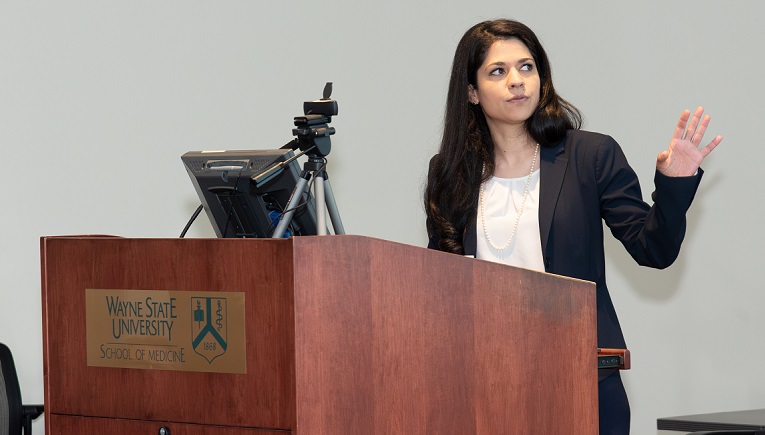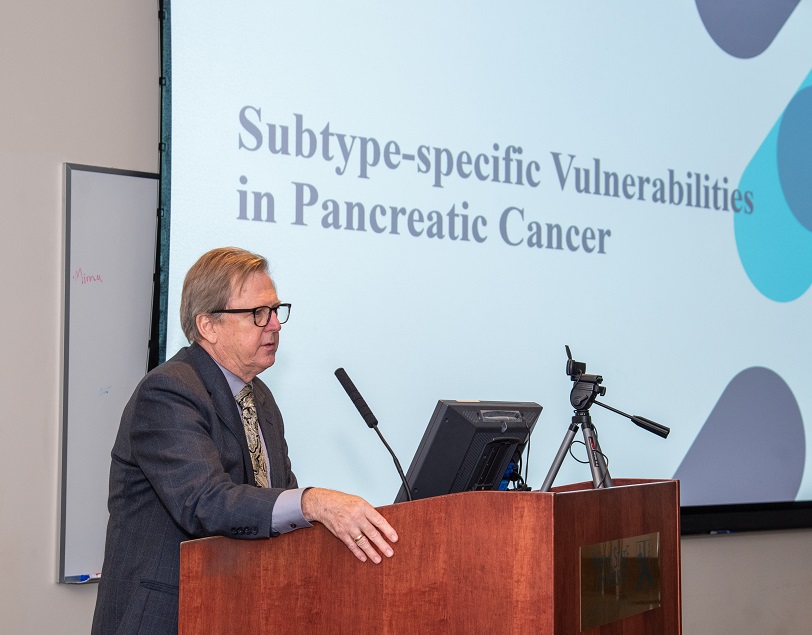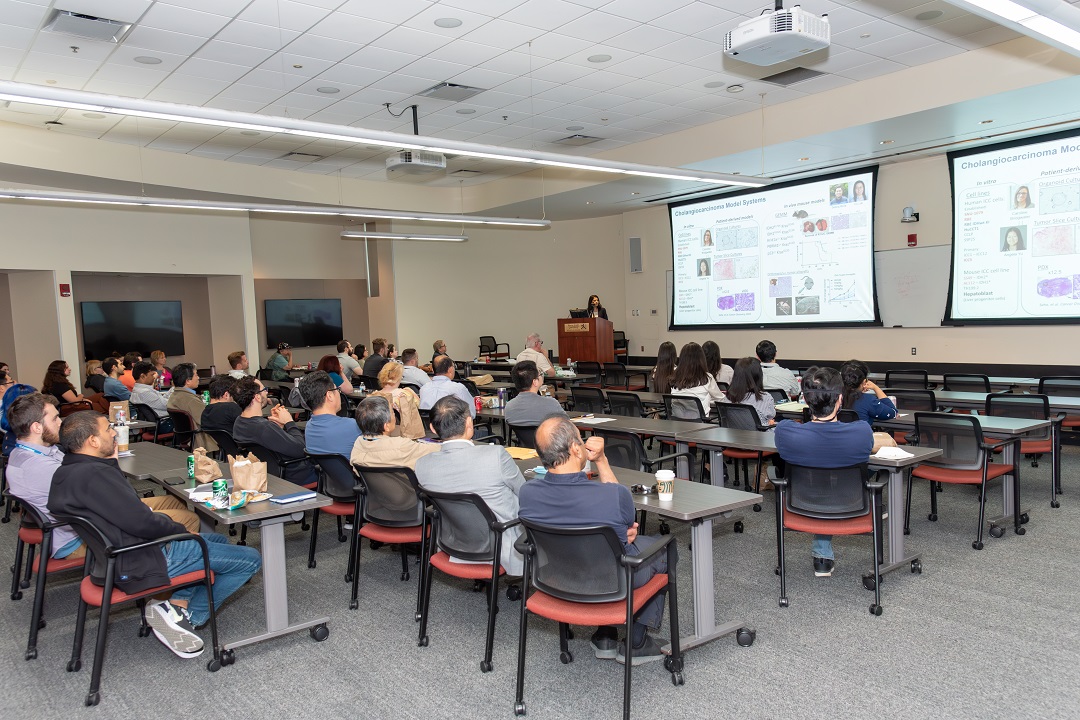
Seven Wayne State University graduate students who were supported by a T32 training grant from the National Institutes of Health to WSU presented their research at the Cancer Biology Graduate Program’s T32 Symposium, held June 9 in the Margherio Family Conference Center.
Current and former T32 students presented their research. The Cancer Biology Graduate Program is the doctoral degree program of the Department of Oncology at WSU School of Medicine, in

partnership with Karmanos Cancer Institute. The program began in 1987 with an NIH T32 Training Grant. The T32 grant, also known as the Ruth L. Kirschstein National Research Service Award from the National Cancer Institute, supports institutions in developing or enhancing research training opportunities for pre- and post-doctoral fellows in cancer research. The WSU T32 grant is currently in its 36th year of continuous funding and was most recently renewed in 2022.
“Our T32 training grant is an important cornerstone of our unique training program in Cancer Biology at Wayne State and Karmanos,” said Professor of Oncology and Program Director Larry Matherly, Ph.D. "This event provides an excellent means of showcasing the outstanding research from these talented trainees.”

Program alumna Sita Kugel, Ph.D. was the keynote speaker at this year’s T32 Symposium, presenting “Subtype-specific vulnerabilities in pancreatic cancer.” At the Fred Hutchinson Cancer Center in Seattle, Dr. Kugel is an assistant professor in the Human Biology Division and deputy co-director of the Pancreatic Cancer Program.
Student presentations included:
- “Characterizing the metastasis-suppressive function of the cell-surface protease prostasin in breast cancer,” by Joseph Lundgren
- “c-Myc is downregulated by ABHD5 in Prostate Cancer Cells (PCa)” by Aaron Lotvola
- “Adipocyte exposure modulates lipid desaturation in metastatic prostate cancer to promote tumor survival in bone” by Alexis Wilson
- “Catalytic Deficient DNA Polymerase Beta Results in Cisplatin Sensitivity Through Inhibition of Cross-Link Repair” by Jacob Lindquist
- “Folate Transporter Expression Impacts Compartmentalization of C1 Metabolism Providing a Unique Vulnerability to SHMT2 Inhibitors,” by Mathew Schneider
- “Cooperative functions of cytokine signaling through JAK1 and JAK2 in orchestrating postnatal mammary gland development and mammary cancer” by Rayane Dennaoui
- “PD-L1 and inflammation confer TRAIL resistance in triple-negative breast cancer cells” by Julio Pimentel